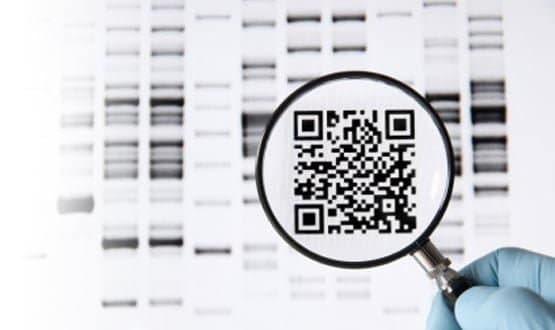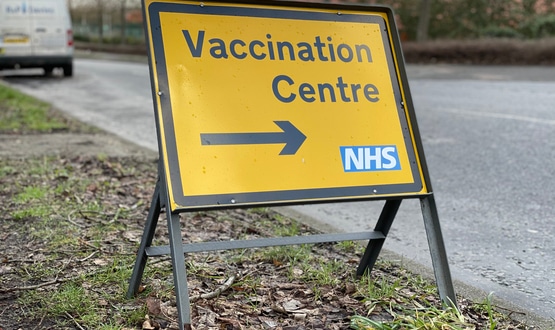Another view: Neil Paul
- 1 May 2012

My appraisal is this week and I can’t say I’m looking forward to it.
NHS appraisal seems to be a paperwork exercise that, in the words of the current chair of the Royal College of General Practitioners, is designed to reassure the public that were not all madmen or killers.
It might reassure, but I’m not convinced that it would catch such people – or, if it did, at what cost in terms of time.
Word, word it’s all we have to go on
I decided to do my appraisal on paper again this year. Well, I actually decided to do it as a word-processed document, as I can’t write more than ten words without my hand cramping up.
There is a pre-written Word document for appraisal that is free to get hold of, and actually quite simple to complete if you are even half-way competent in Word.
In addition, there are two websites to help. But for all their expense they are, essentially, just fancy ways of filling in the same form.
These are the RCGP toolkit and Clarity – which is the new version of software by the people who ran the original NHS appraisal toolkit, previously known as ATK.
Because I am not a member of the college, the RCGP toolkit would cost me £150; which seems a bit steep. I can’t find out how much Clarity is, as the website doesn’t seem to say – which always worries me.
Both have good and bad points. Both are obsessed with you saving your work every 15 minutes to prevent data loss. But at least they now seem to work on most browsers – which ATK didn’t.
Websites to ‘help’
Several people I asked said they had tried to use the RCGP toolkit and found it too complicated. Several colleagues also complained about the actual ‘in appraisal’ process, during which both parties have to keep logging in and out swapping back and forth.
I looked on the website and it says a recent update has sorted this; which is good, but suggests that the toolkit builders are having problems communicating with their users. It also breaks one of my rules for software, which is that users shouldn’t need to use the manual.
Clarity looks prettier. I asked my wife what her appraisees thought of it, and got the surprising answer that she had never had any successfully use it. Those that had tried had problems signing off their documentation and ended up printing it out.
I’m surprised as the product looks quite straightforward, even if it does seem a little bit American in places (the demo site talks about surgical logs and mobility and mortality meetings).
The real problem, however, is that both products exist in weird and wonderful isolation. While you can upload saved documents to them, you can’t do anything else.
Lots of medical education sites collect a history of courses you have passed; yet they can’t talk to my appraisal account. In fact, while we are all used to being on websites where you can tweet the article or link it to your Facebook account, nothing like this exists for medical appraisal.
We need an app for that
I also need an app for my iPhone and iPad that works offline, doesn’t need me to log in every time, and doesn’t need to me to navigate to the right page from scratch by pressing loads of buttons.
I want to be able to tap’ new’, select the typing tool and start filling in a template that gets synced automatically. Lots of other software does this.
Look at Evernote, which is my personal favourite note keeping software because of Skitch and the Evernote clipper. Both are platform independent and allow you to clip anything on screen (from a picture to a URL) into your account automatically at the touch of a button – you can add notes at the time or later.
This is how I do my learning; not sitting at a computer, connected to a website where I have to type everything in.
Don’t just do it, QR code it
Most modern web apps have an API, where third-party developers can tie into the main app. Imagine an appraisal gadget that was on every medical site aimed at GPs.
It would show how many had liked the page, some comments from people (including counter views and corrections), allow you to comment, and have the article and your comments automatically recorded in your account. This isn’t fantasy; Facebook does this already.
Another useful tool would be a custom email address for uploads. Again Evernote and lots of Todo sites do this already.
You forward an email with attachments to your personal email. The software automatically puts it into the correct folder. Others could send stuff to the same email address, including minutes of meetings.
I would also like the sites to interact with my NHSmail calendar – reading any meetings flagged as education and telling me about my appraisal dates.
My last wish is a version of QR codes for education. These barcodes appear on adverts and even on products; you scan them on your smart phone and it takes you to a website.
Why isn’t there something similar for education and learning events? Why do I have to keep typing in the name of the meeting I’ve gone to, the date, the speaker and so forth?
Why can’t I scan a code on arrival that automatically puts all this into my appraisal toolkit so all I have to do is enter my notes and reflections? Perhaps somehow it could keep a register as well for the organiser?
This is what the web is about; connection and simplicity – not just filling in a paper form online.
About the author: Dr Neil Paul is a full time partner at Sandbach GPs, a large (21,000 patient) practice in a semi rural Cheshire. Until recently, he was on the PEC of Central and East Cheshire Primary Care Trust, with responsibility for Urgent Care and IT.
He is now on a journey into the unknown. He is on the board of his local consortium, one of many on a pilot leadership programme, and looking at provider opportunities. He recently set up a successful primary care clinical trials unit and is involved in several exciting IT projects.





